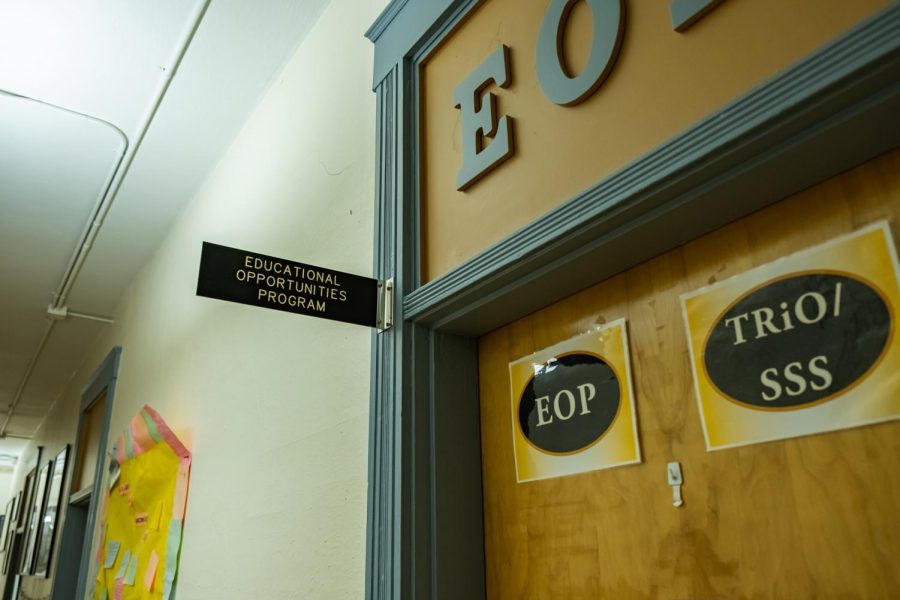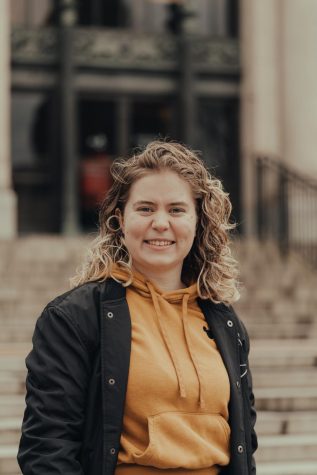Student accuses ASOSU of discrimination for disqualifying elections running-mate
February 22, 2021
The Associated Students of Oregon State University disqualified a student from participating in its elections because they had taken a term off for financial reasons; ASOSU was then accused of discrimination against low-income students.
Along with the two other tickets running for president and vice president this election season, a third team had been planning to run. This team consisted of Jax Richards, an OSU student double majoring in economics and public policy and support staff for the Office of Advocacy’s Equity- Centered Community Design Board, and his vice president, who wished to remain anonymous.
Just before the application deadline, Richards and his running mate were informed by ASOSU that Richards’ running mate was unable to participate because they were not enrolled in classes for the winter term. Currently, ASOSU does not allow students who are not taking classes to run for positions, a rule that Richards knew of but assumed would not be of great importance.
In an email to ASOSU, Richards said, “Thinking this may present a minor technical issue, more than a week in advance, she sent an email to the ASOSU vice president to make sure this was appropriate. Especially considering the context and circumstances, we saw no issue.”
ASOSU, however, responded by saying that the vice president candidate was unable to participate in the election, leaving Richards with the choice to either drop from the election or find a new running mate. Richards chose to drop.
“I would rather stand by my friend and principles than run to lead a system that doesn’t accommodate my friend and me,” Richards said via email. “I cannot in good conscience advocate my beliefs and represent low-income student needs if I bail on them, for personal gain, the first chance I get.”
After disqualifying his vice president, Richards accused ASOSU of discrimination toward low-income students. He said he had been disheart- ened when he learned that ASOSU was not letting his running participate only because they’d taken the term off.
“Considering many low-income students take terms off for financial reasons, even not during COVID-19 and a recession, I believe this rule is a massive barrier for low-income students, and, by extension, many other communities,” Richards said.
The ASOSU elections committee, however, said they had not disqualified Richards’ run- ning mate due to their inability to take classes due to financial reasons, but only because they were ineligible to run based on the eligibility requirements stated on the website and in the information packet.
The ASOSU elections committee added that these requirements were approved by the elections committee as well as the ASOSU Senate and have been available since November 2020.
“At its core, ASOSU is the recognized student government at OSU, as determined by the State of Oregon,” the ASOSU elections committee said via email. “As such, ASOSU has a responsibility to represent its constituents, that being students, and a non-student, defined within the ASOSU constitution, is not representative of the constituents of ASOSU.”
Richards, though, believes this illustrates even larger problems within ASOSU. Richards claimed, for example, that while an individual is unable to run for office if they take a term off for financial reasons, a current ASOSU student can take a term off from classes for an internship and still hold their position in office. This is a claim that the ASOSU elections committee did not confirm nor deny.
Richards said there are many other possible barriers to participating in the ASOSU elections for students of low income, including the prefer- ence for candidate resumes to have unpaid intern- ships, the requirement for candidates to finance their own campaigns—up to a $300 limit—and the fact that ASOSU legislature members are only given a stipend that doesn’t cover the amount of work they actually put in.
“All these are financial barriers for entry and retention,” Richards said. “I further believe for every student with the capability and privilege to run and be involved in ASOSU, there’s many others who can’t afford to be involved and be heard in the first place.”
Janet Nishihara, executive director of the Educational Opportunities Program, does not personally know of any policies that are found to be discriminatory by students of low income, but did speak to some of the more general barriers that these students often face.
“The main barriers that we have been work- ing on are most likely familiar to others: the need to work more and more hours while taking classes and gaining experience with student organizations, internships and research opportunities,” Nishihara said.
Despite these and many more barriers, Nishihara said it is important that low-income students feel they can participate in ASOSU because, otherwise, it means losing the viewpoint and concerns of these students.
“If ASOSU is unable to connect with low-income students to hear their concerns, they will not be able to respond to their concerns,” Nishihara said. “The student government is in danger of continuing to be formed to respond to the needs of a minority of the students–those who do not have the same concerns as low-income students.”
The ASOSU elections committee emphasized that, “ASOSU is constantly pursuing the goal of being more inclusive and accepting of diversity in all regards; we are actively listening to these concerns and systemic issues and want to continue to address them and alter our formal documents to reflect our values.”
There is no current plan to change the rule about needing to be enrolled in classes to participate in ASOSU elections, though the elections committee said they may have amended the rule if the issue had been brought up earlier.
Since Richards called ASOSU out for disqualifying his running mate, he has withdrawn himself from most conversations surrounding the topic because he believes they shouldn’t focus on him as an individual, but rather on change for the good of the students.
“I have seen how segmented and secretive ASOSU can be—and I wanted everyone to have an honest and open discussion about how they can be better,” Richards said. “I hold no malice, or anger towards any member of ASOSU… However, I also believe many of them are complicit or fail to recognize the flaws of ASOSU. I’ve seen many members of ASOSU advocate for changes that would benefit themselves… but hardly have I seen an advocate for equitable changes that would alter their own program. And I think that’s worth more than a discussion.”




















































































![Newspaper clipping from February 25, 1970 in the Daily Barometer showing an article written by Bob Allen, past Barometer Editor. This article was written to spotlight both the student body’s lack of participation with student government at the time in conjunction with their class representatives response. [It’s important to note ASOSU was not structured identically to today’s standards, likely having a president on behalf of each class work together as one entity as opposed to one president representing all classes.]](https://dailybaro.orangemedianetwork.com/wp-content/uploads/2025/03/Screenshot-2025-03-12-1.00.42-PM-e1741811160853.png)
























